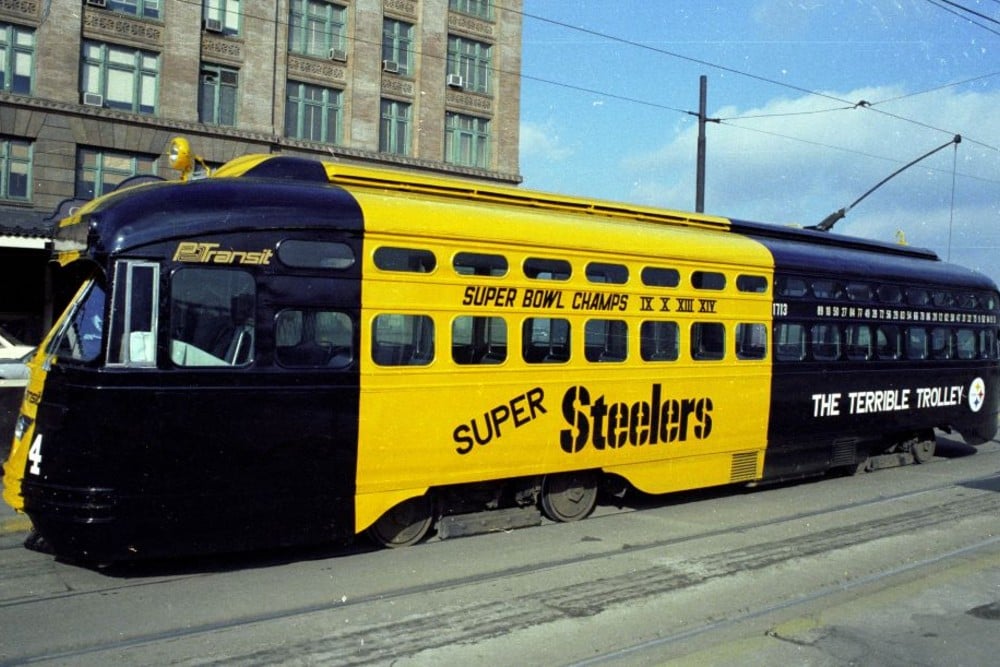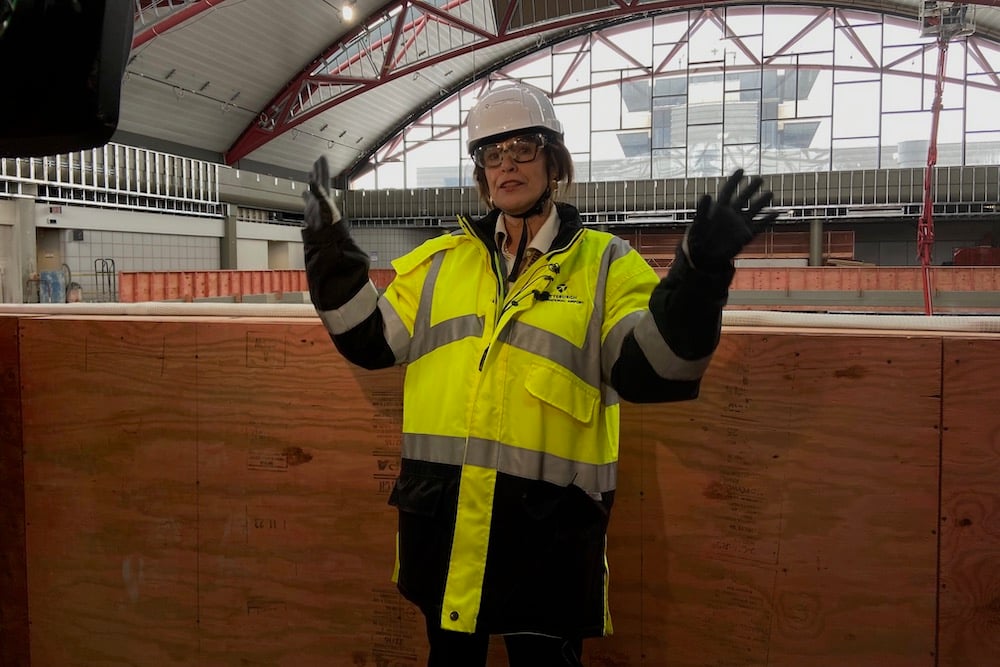Collier’s Weekly: Pittsburgh’s Litter Problem Is Out of Control, and the City Is Ignoring It
We need to acknowledge that our city has become dirty — and our elected officials need to stop ignoring the problem.
Just around the corner from my home, there are a few oxygen tanks lying in the brush.
You know — like the one Brody shot to kill Jaws, big metal tubes, quite possibly still filled with highly explosive compressed air.
Near there, there’s a whole television sitting in a bush. Along the adjoining alley, there are several piles of discarded bricks; sometimes they tumble onto the roadway. (Of everything scattered around my neighborhood, I’m least annoyed with the bricks; sometimes I pick one up to help line my walkway.)
This city has a litter problem. Everywhere I go, more or less, there’s literal garbage on the streets, piling up around bus stops and telephone poles like post-apocalyptic tumbleweeds. That’s in addition to the larger problem of dumping, with items like those above discarded on less-traveled streets to avoid the trouble of proper disposal. That problem, in addition to being unsightly and ruinous to the landscape, can be very dangerous.
We tend to overlook Pittsburgh’s flaws in the name of our ongoing, maniacal attachment to civic pride. Yes, I love it here — but that doesn’t mean we can’t or shouldn’t call out problems when they turn up. If you go to nearby cities, they aren’t nearly as dirty. Cleveland is cleaner. Philadelphia is cleaner, despite a vastly larger population. Hell, Manhattan is cleaner.
The only parts of the region that seem to be relatively unscathed are those where residents are affluent and idle enough to keep an eye on things — congratulations, Sewickley — or those where a developer can employ people to redd up, such as the South Side Works. Pretty much any street that isn’t posh or privatized is a mess.
And yes, there’s an equity issue here; streets in the most beleaguered neighborhoods are generally the dirtiest. I don’t know how the scant clean-up resources are being allocated, but they seem to conspicuously avoid areas outside of the public eye.
Writer (and Pittsburgh Magazine contributor) Virginia Montanez has been advocating for officials to pay more attention to the issue; she says her pleas have been mostly ignored. PennDOT has given her canned responses about her concerns; council members and the mayor’s office have not offered much help.
“For now, I’m focusing on shaming via Twitter posts and pushing Pittsburghers to clean up litter when they see it,” Montanez says. “I’m especially pushing them to support the efforts of Allegheny Cleanways because Mayor Gainey doesn’t seem to care at all and I can’t get any City Council or County Council members to pay attention … our elected officials have completely given up and seem perfectly content to allow visitors to drive past piles of garbage as they enter our city. They’ve failed us and they don’t seem to care.”
City government in 2021 enacted some nominal efforts in the direction of enforcing penalties for dumping. There’s also been some movement in clearing up bureaucratic hurdles; precisely where litter gathers can change who is responsible for it, and everyone is eager to pass the buck. While there’s nothing wrong with those efforts, however, I’m not interested in fining people for throwing an old chair into the woods. I’m interested in hiring people to get out and clean up. (The Department of Public Works has cited ongoing staffing problems as part of the issue. As always, there’s a quick and easy solution to staffing issues: Pay people more money.)
The nonprofit organization Montanez mentioned, Allegheny Cleanways, organizes cleanups and flags problem areas in the hopes of raising civic attention. It’s commendable work. But it shouldn’t take a nonprofit to handle such a basic duty of decent government.
There is certainly an amount of personal responsibility that comes into the issue. I’d like to think that most of us understand that litter is unacceptable, but recent conditions indicate that my optimism is misplaced. So, a reminder: Never, ever, ever throw garbage on the street. Never dump anything you don’t want or can’t take care of on a disused hillside. Yes, it’s a pain that you have to pay to get rid of televisions; yes, it’s irritating that some things are hard to recycle or get rid of. You should nevertheless be a decent citizen and dispose of things properly.
This isn’t a problem that can be solved via shaming (though you should absolutely treat anyone you see flagrantly littering like a monster). This is a problem that the city can, and should, solve. There does not appear to be any regular, scheduled mechanism for litter cleanup within the city limits, and we clearly need one. These efforts should be routine and constant; there should be full-time jobs dedicated to them. If we need to nominally tax larger businesses and corporations — perhaps starting with two gigantic companies that continue to masquerade as nonprofits — to support a clean city, it’s more than worth it.
Aren’t things supposed to be livable around here? Because my definition of livable does not involve being surrounded by garbage.















